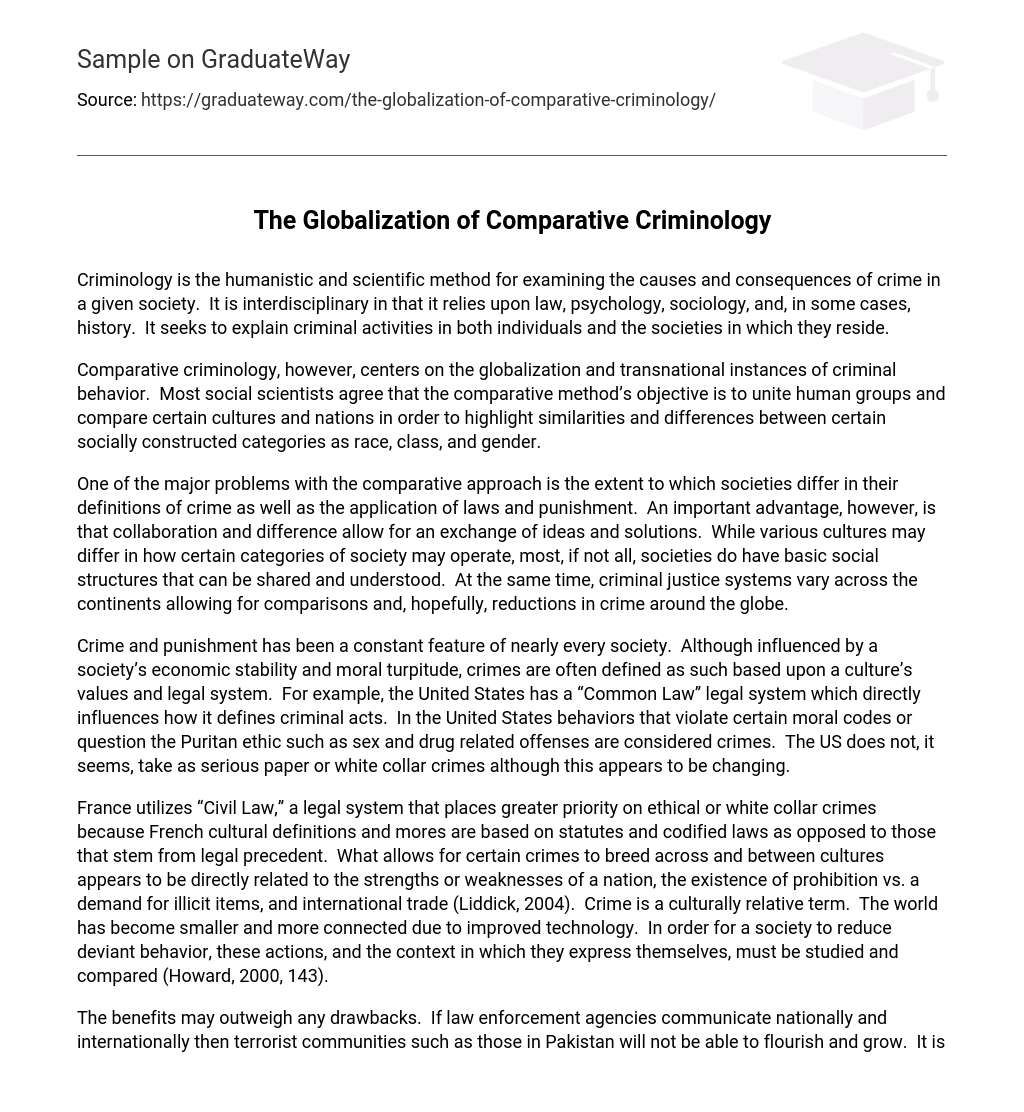Criminology is the humanistic and scientific method for examining the causes and consequences of crime in a given society. It is interdisciplinary in that it relies upon law, psychology, sociology, and, in some cases, history. It seeks to explain criminal activities in both individuals and the societies in which they reside.
Comparative criminology, however, centers on the globalization and transnational instances of criminal behavior. Most social scientists agree that the comparative method’s objective is to unite human groups and compare certain cultures and nations in order to highlight similarities and differences between certain socially constructed categories as race, class, and gender.
One of the major problems with the comparative approach is the extent to which societies differ in their definitions of crime as well as the application of laws and punishment. An important advantage, however, is that collaboration and difference allow for an exchange of ideas and solutions. While various cultures may differ in how certain categories of society may operate, most, if not all, societies do have basic social structures that can be shared and understood. At the same time, criminal justice systems vary across the continents allowing for comparisons and, hopefully, reductions in crime around the globe.
Crime and punishment has been a constant feature of nearly every society. Although influenced by a society’s economic stability and moral turpitude, crimes are often defined as such based upon a culture’s values and legal system. For example, the United States has a “Common Law” legal system which directly influences how it defines criminal acts. In the United States behaviors that violate certain moral codes or question the Puritan ethic such as sex and drug related offenses are considered crimes. The US does not, it seems, take as serious paper or white collar crimes although this appears to be changing.
France utilizes “Civil Law,” a legal system that places greater priority on ethical or white collar crimes because French cultural definitions and mores are based on statutes and codified laws as opposed to those that stem from legal precedent. What allows for certain crimes to breed across and between cultures appears to be directly related to the strengths or weaknesses of a nation, the existence of prohibition vs. a demand for illicit items, and international trade (Liddick, 2004). Crime is a culturally relative term. The world has become smaller and more connected due to improved technology. In order for a society to reduce deviant behavior, these actions, and the context in which they express themselves, must be studied and compared (Howard, 2000, 143).
The benefits may outweigh any drawbacks. If law enforcement agencies communicate nationally and internationally then terrorist communities such as those in Pakistan will not be able to flourish and grow. It is no accident that Pakistan follows China in terms of heroin production and marketing, and terrorist organizations. Global comparisons of crime and methods offer the greatest hope for living in a world without crime.
References
- Howard, Gregory J. & Newman, Graeme & Alex Pridemore, William. (2000). Theory and Methods and Data in Comparative Criminology. Measurement and Analysis of Crime and Justice, 4, 139-142.
- Liddick, Donald R. (2004). The Global Underworld: Transnational Crime and the United States. Westport, Connecticut: Praeger Press, 11-38.





